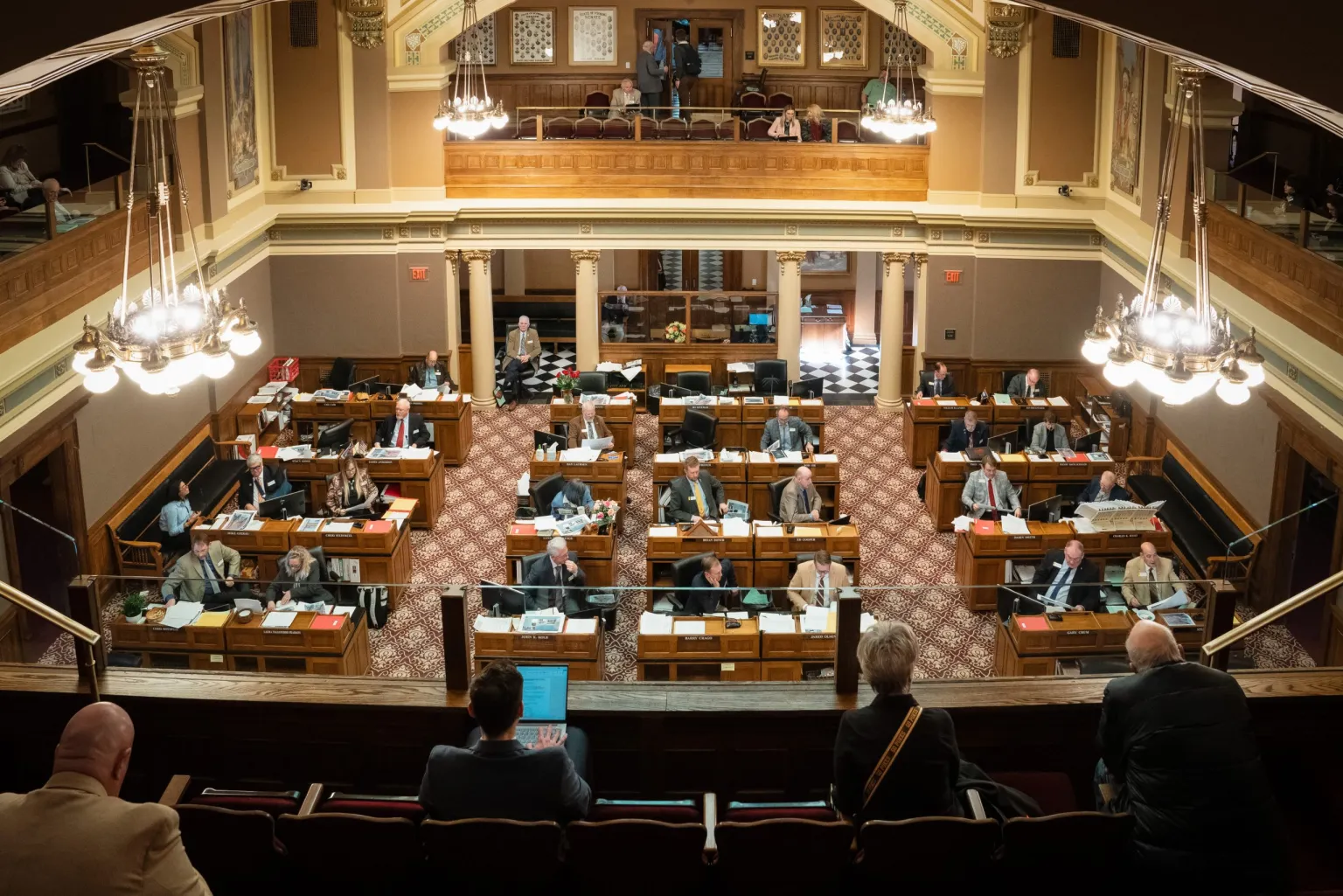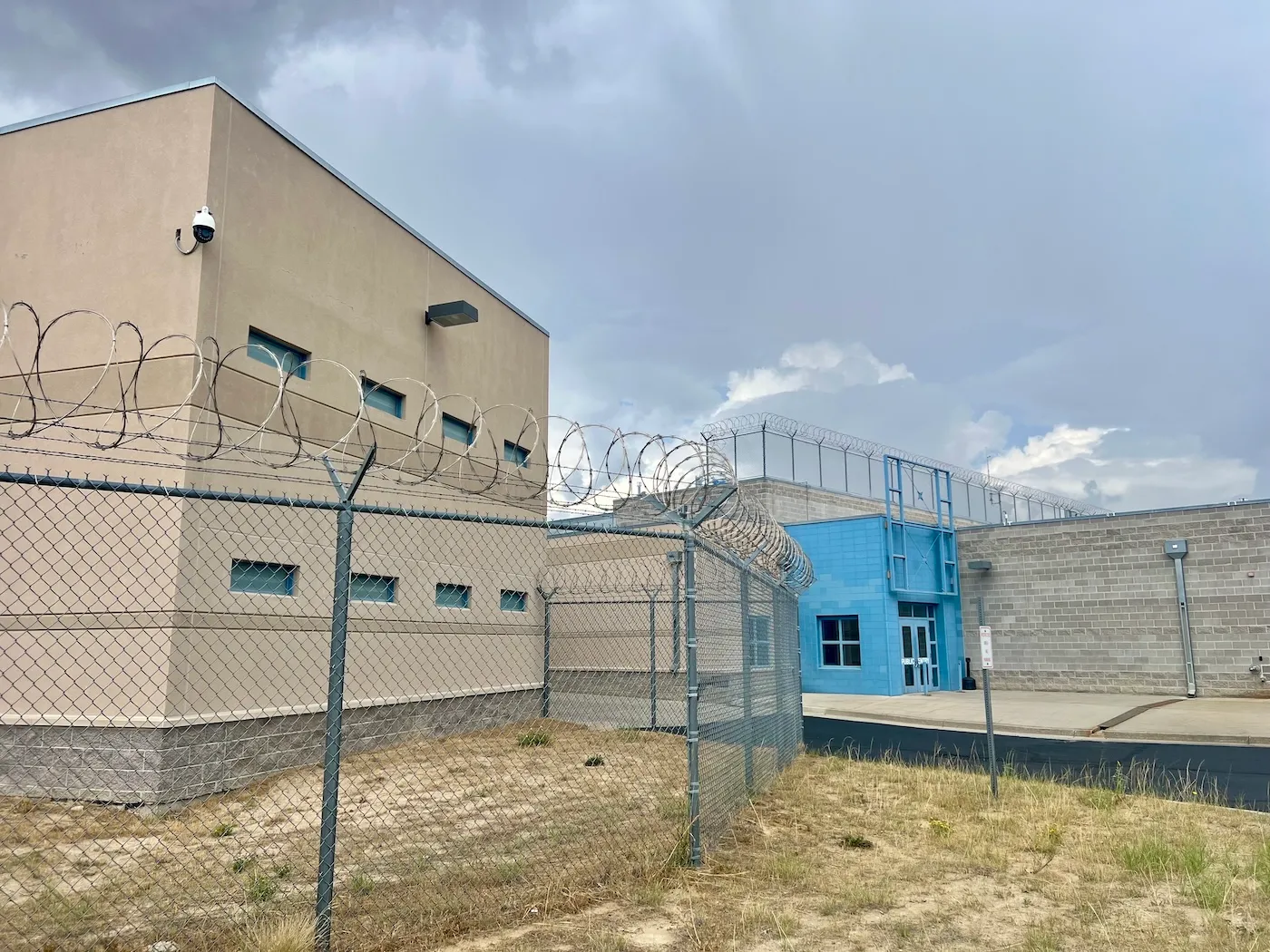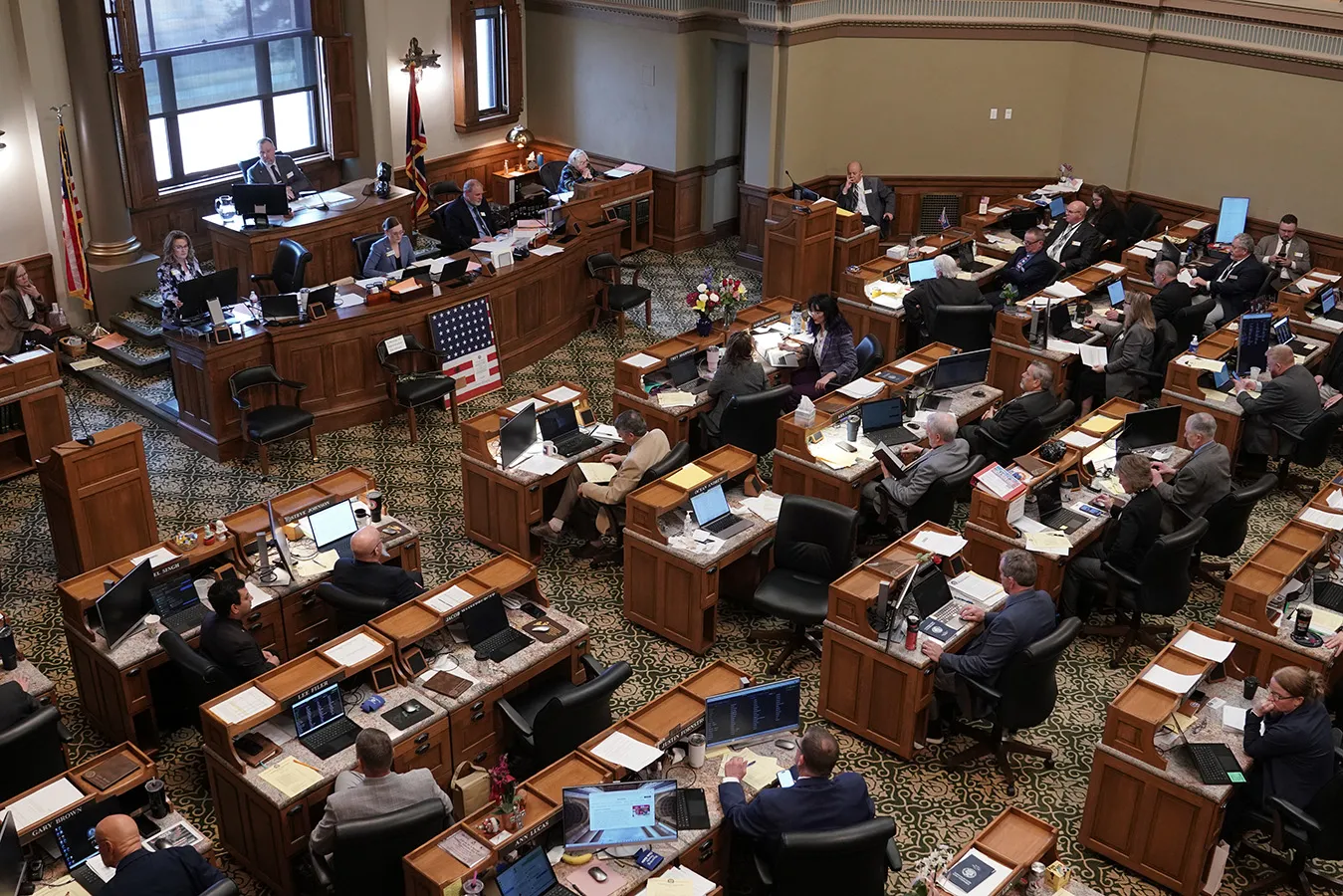The original story by for WyoFile.
Since October, Laramie County Sheriff Brian Kozak has quietly turned his agency into one of Wyoming’s most active partners in federal immigration enforcement — and the numbers around Cheyenne are adding up fast.
Between a high-profile trucking sweep and routine traffic stops, Kozak estimates about 70 people in Laramie County have been turned over to US Immigration and Customs Enforcement (ICE) in just the last two months.
That’s a big shift for a local sheriff’s office, and it’s drawing both praise and concern.
Back in October, Kozak announced that he and 25 of his roughly 170 commissioned officers had completed federal training under ICE’s 287(g) program, which essentially deputizes local law enforcement to help identify and detain people who are in the country without authorization.
“Wyoming does not want to be a sanctuary state for those that ignore our laws,” he said at the time, framing the move as a public safety measure.
He also promised his deputies wouldn’t turn into roaming immigration agents.
Kozak stressed that they wouldn’t proactively seek people out based solely on immigration status and pledged not to engage in racial profiling or discrimination.
“We affirmed our pledge to obey and enforce the United States Constitution,” he said in October, specifically mentioning race, language, ethnicity and perceived immigration status.
Two months later, though, Laramie County has become the site of some of the most concentrated immigration enforcement activity in Wyoming, centered around Cheyenne — the state’s largest city.
The most visible move came last week, when Kozak’s office teamed up with ICE and the Wyoming Highway Patrol (WHP) for a three-day sweep called Operation Safe Haul.
The focus: commercial truck drivers using county roads to bypass the heavily enforced Interstate 80 corridor and port of entry.
Kozak says officers conducted more than 190 traffic stops during the operation, zeroing in on obvious violations like speeding, broken or missing safety lights, and other issues that could make trucks unsafe on the road.
From there, WHP’s federally certified inspectors dug into safety and compliance:
- 45 brake system violations;
- 16 commercial driver’s license or other licensing issues;
- 10 violations of English-language proficiency rules;
- And other assorted safety problems.
By the end of the three days, 40 truck drivers had been arrested and handed over to ICE for deportation proceedings.
In a Facebook video, Kozak called them “criminal aliens” and said they were all now in ICE custody. He’s highlighted a few with serious rap sheets: one driver with a sexual assault conviction who’d been deported twice before, another with DUI and larceny convictions who’d reportedly been deported five times, and a third person with a significant criminal history.
But he also acknowledges that not everyone detained fits that “worst of the worst” profile.
“We were pulling over for obvious violations,” he said, emphasizing that every encounter began as a traffic or safety stop. “I was completely surprised by the number of unlicensed, undocumented drivers and unsafe trucks. We have a big problem in our country.”
WHP, in its own press release, framed the same operation more around safety than immigration, headlining it:
“Three Day Multi-Agency Operation Leads To Multiple Arrests, Commercial Carrier Safety Violations.”
WHP specifically credited its inspections with leading to 12 immigration arrests — a much smaller number than the 40 deportations highlighted in Kozak’s video. That split in emphasis is part of what critics now call “mixed messaging” around the sheriff’s partnership with ICE.
On top of the 40 truck drivers, Kozak says around 30 more people have been turned over to ICE by his deputies since Oct. 1 after being stopped locally on suspicion of various crimes or violations.
In most of those cases, he says, immigration status only came into play after someone was pulled over for something else — often a traffic offense.
“We have never gone to someone’s house or place of employment” just to look for immigration violations, Kozak said.
He insists the initial contact is always tied to a state or local law being broken.
But what happens next depends on the severity of the alleged crime.
If a person is suspected of a serious offense — like a felony DUI that poses a clear threat to public safety — Kozak says his office is asking prosecutors to pursue local charges first.
For lesser offenses, though, it’s a different story.
Some people stopped for things like speeding or minor violations are not being charged with local crimes at all. Instead, once deputies confirm someone appears to be undocumented, they hand the person directly over to ICE.
“We don’t want our local court holding them up,” Kozak said. “We will not charge the local crime and [instead] book them into the immigration process.”
Kozak argues the partnership with ICE is making Laramie County — and the country — safer.
“Most definitely their focus is people who are a danger to the community,” he said of federal immigration officials.
But civil liberties groups aren’t convinced that’s what’s actually happening on the ground.
“We were sold that with this doubling down on immigration enforcement they’d be trying to get the worst of the worst off the street,” said Janna Farley, spokesperson for the American Civil Liberties Union of Wyoming. “So far, it seems like they’re casting a much wider net.”
National data show that most ICE detainees do not have criminal convictions, including in Wyoming and Colorado in recent years. That pattern has advocates worried Laramie County is heading down the same road.
Farley says the sheriff’s description of traffic-based stops feeding directly into immigration detention is exactly what immigrants’ rights groups have warned about for years with 287(g) agreements.
“It really is what we’ve been talking about and what people within the community are afraid of,” she said. “We don’t know why someone was being targeted for a traffic violation, and hopefully it wasn’t racially motivated — as in someone seeing a brown person and then, ‘oh, it just so happens you see their brake light was out.'”
Kozak rejects the idea that Operation Safe Haul or his broader 287(g) work relies on racial profiling. He points out that plenty of truckers cited during the operation were citizens or otherwise legally in the country.
“We stopped any violation and we enforced all laws,” he said.
Kozak is no stranger to attention — or controversy.
Since winning the sheriff’s race in 2022, he has leaned into a tough-on-crime, tough-on-immigration image:
- In 2024, his department bought a billboard in Denver, suggesting Colorado law enforcement officers would be better off working in conservative Wyoming.
- Earlier this year, he hung a flashing “VACANCY” sign over the jail entrance, motel-style, to advertise that Laramie County has plenty of room for inmates — including federal detainees.
He also says he’s likely the first head of a local agency in Wyoming to personally complete ICE’s 287(g) training.
Now, with roughly 70 people funneled into ICE custody in just two months — 40 truckers in one sweep, around 30 others from routine stops — his immigration strategy is no longer just a talking point. It’s reshaping how law enforcement works in and around Cheyenne.
Supporters see a sheriff stepping up where they think the federal government and other states have fallen short. Critics see a local agency blurring the line between public safety and immigration policing, in ways that could chill trust and invite profiling.
Either way, Laramie County has become a test case for how far a Wyoming sheriff can — and should — go when it comes to enforcing federal immigration law on local streets and highways.










The latest news in your social feeds
Subscribe to our social media platforms to stay tuned